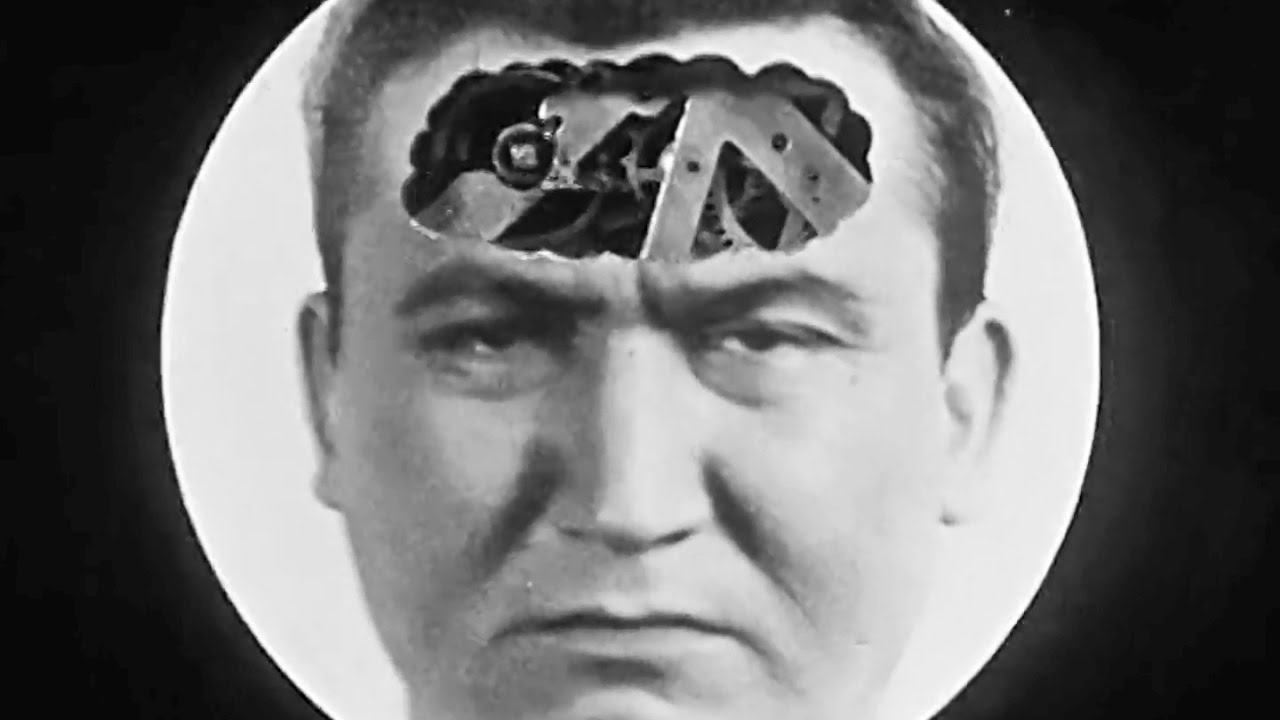Salesmanship: “Beware of Mental-itis” 1937 Calvin Company; Salesman Training Comedy Film
Marketing, Sales, Salesmen… playlist:
Offices, Office Work, Office Machines… playlist:
more at
‘Salesman dressed in turn of twentieth century fashion on circus-like stage in front of large anatomical drawings; calls forward audience with his cane, back of audience members heads face camera, salesman peddling Elixir of Health from South America… Man wearing 1930s fashion suit pants and suspenders lies on examination table as doctor taps on man’s chest, looks inside his mouth. Old-fashioned late-nineteenth century salesman enters hospital room as doctor leaves; salesman puts cone over mans head labeled “Mentalscope” and looks inside the cone as though it were a microscope, focusing a small knob next to the eye piece. POV shot from inside “Mentalscope” of man’s head; salesman looks up from device, exclaims “Why this man is dead from his neck up… Yes, yes, a pure case of Mentalitis…”‘
Public domain film from the Library of Congress Prelinger Archives, slightly cropped to remove uneven edges, with the aspect ratio corrected, and one-pass brightness-contrast-color correction & mild video noise reduction applied.
The soundtrack was also processed with volume normalization, noise reduction, clipping reduction, and/or equalization (the resulting sound, though not perfect, is far less noisy than the original).
The Calvin Company was a Kansas City, Missouri-based educational and industrial film production company that for nearly half a century was the largest and most successful film producer of its type in the United States…
Origins
The Calvin Company was born, lived, and died in Kansas City. It was the child of Forrest (“F. O.”) Calvin, a kid from Pleasanton, Kansas, who studied journalism and advertising at the University of Kansas in the late 1920s… F. O. went to work for an advertising agency in Kansas City, doing direct mail advertising and commercial art and finding both rough-going. However, his tenure at that agency did lead to an interesting discovery. The ad agency was occasionally using a 16 mm movie camera to make little advertising films for its clients. This was an almost unheard-of practice, as the 16 mm film format was at the time reserved mostly for home movies, though it was convenient and inexpensive and just perfect for educational and business films. F. O. Calvin was determined to invest in the future of 16 mm.
The agency did not survive the Great Depression, but in 1931 F. O. and his wife Betty went into business for themselves, founding the Calvin Company, originally an advertising agency that just happened to specialize in 16 mm business movies…
After a while, nationally known Fortune 500 companies began to take a chance on 16 mm and hired the Calvin Company to produce sales training and promotional movies for them. DuPont, Goodyear, Caterpillar Tractor Company, General Mills, Southwestern Bell, and Westinghouse had all joined Calvin’s client list by the end of the 1930s. These were accounts that would last for decades. Calvin also branched out into the educational film field, producing pioneering classroom films that were distributed through companies such as McGraw-Hill, Encyclopædia Britannica, and the U.S. Office of Education to public schools throughout the country… in 1938 they produced the first business film in full sound and full color…
In 1959, the original four founders of the Calvin Company retired and, though they continued to serve on the firm’s advisory board, the Calvin organization came under new management. Leonard Keck, a longtime Calvin executive, took over presidential duties and the company’s name was changed to Calvin Productions. This change in management led to the departure of several longtime core production employees and a slow but steady decline in business during the 1960s. By 1968, the production staff had been cut drastically… the whole situation worsened when projectors were traded in for VCRs. During the 1970s, Calvin briefly attempted to catch a part of the videotape market, but the company was more suited to the 16 mm film format which it had originally pioneered forty years earlier, and the idea of shifting to video was soon abandoned. Satellite studios in Louisville, Pittsburgh and Detroit were sold. Finally, there was just the Calvin studios in Kansas City, where it had all begun, and around 1978 regular film production ceased. Only the Calvin film processing laboratory continued, losing more and more business and more and more money until finally it officially ceased operation on Halloween of 1982. In 1991, the old seven-story Calvin headquarters at Truman and Troost fell to the wrecking ball…

